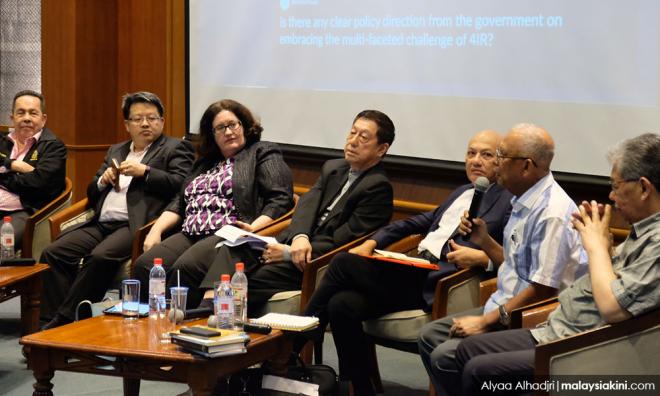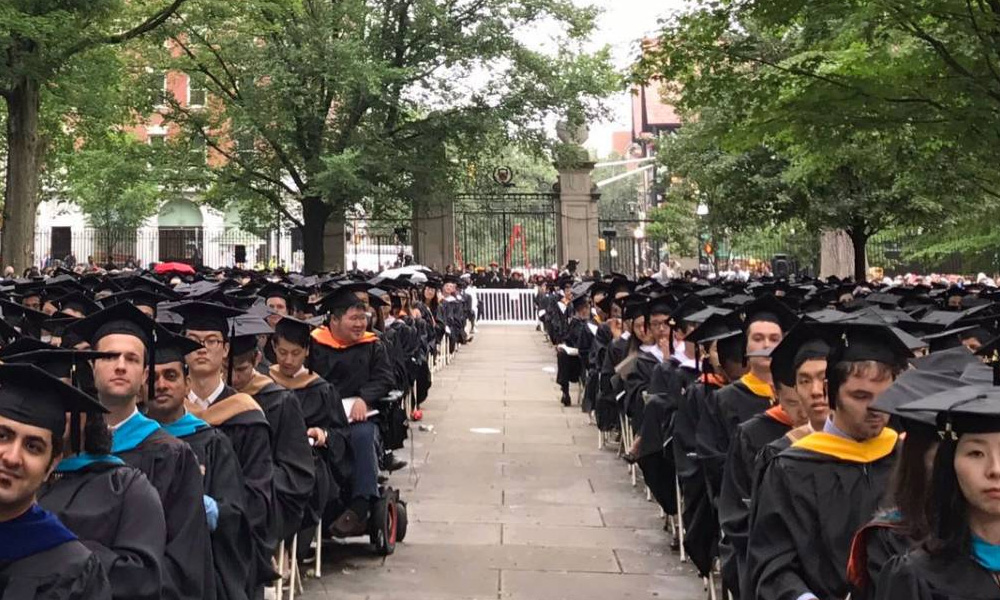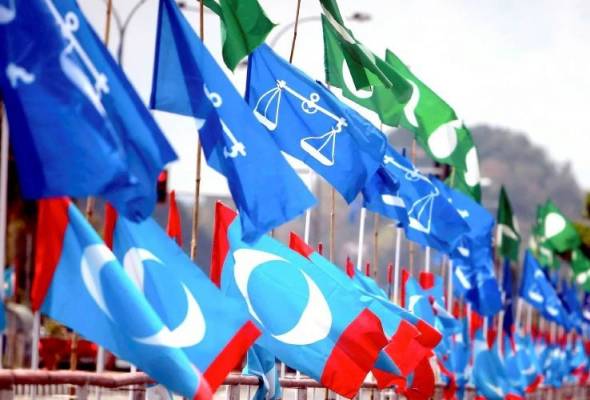
Published by Malay Mail, image from Malaysiakini.
It has been nine months since Pakatan Harapan came to power in Malaysia — enough time to bring a baby to full term. Alas, Malaysia did not give birth to a foreign policy.
The question is, has one been conceived yet at least?
Searching for a vision
It is not the first time this issue is being raised. In mid-January, former diplomat Datuk Redzuan Kushairi introduced some general points about what Malaysian foreign policy is, focusing on what it is not or should not be.
In particular, he warned against giving too much importance to old but defunct alliances and urged Malaysia to look into new possibilities where necessary.
On February 1, other colleagues, Karl CL Lee and SK Chia, commenting on Ambassador Redzuan’s thoughts, posed three questions regarding Malaysian foreign policy, which has yet to be laid down. The authors outlined three main directions in their questions — the positioning of China in the new world order, Malaysia’s relationship with traditional Western partners and the reassessment of relations with Muslim nations.
It appears that none of the commentators pondering the question of Malaysian foreign policy referred to the Prime Minister’s speech at the UN General Assembly as a benchmark — even while it was in fact adopted by the foreign ministry as a foreign policy ‘framework’.
Perhaps it was not persuasive or all-embracing enough, such that thinkers and observers keep looking for something more formalised. In any case, that does not matter now. What matters is how to work out a set of rules to rely upon when making foreign policy decisions.
Foreign policy doctrine
Such a set of rules and principles is usually called a foreign policy doctrine — a guide, a strategy according to which Malaysia is to deal with other nations, even if the cabinet is reshuffled over and over again.
It is impersonal and thus allows more space for manoeuvring as it does not rely on campaign promises, along with defining the pathway forward.
Doctrine is premised on ideology and thus, is able to set a stable course for the country in the international arena as opposed to opportunistic and inconsistent decision-making. Apart from the course per se, it facilitates a stable image for Malaysia, which is discernible and to an extent predictable.
If the overall purpose of a foreign policy is to be perceived as a wind vane, accommodative to any blow of the wind coming from outside (especially if potentially beneficial), a country might be better off without having any programme documents.
That said, this is not the case with Malaysia’s new government — it is, instead, the time to be assertive and to present itself to the world in this new capacity. Some speak of “Mahathir’s Doctrine” and “Look East” to sketch the contours of what the current policy is. On top of that, Defence Minister Mohamad Sabu reasserted his ministry’s commitment to come up with a white paper in July and make it public by September. The white paper is said to define Malaysia’s long-term national policy in defence and security.
However much security means for a country, security does not encompass a nation’s entire foreign policy, which should be conceptualised in diplomatic terms as well. Malaysia is among the world’s top 20 exporting nations and maintaining this status is a priority that defines how it projects its image on the international stage. Therefore, defence and security, in its traditional sense, will be only a part of the nascent foreign policy doctrine for Malaysia.
Principles and alliances
Ambassador Kushairi suggested that old alliances are not serving the purpose they used or at least were supposed to — the Non-Aligned Movement (NAM) and the Organisation of Islamic Cooperation (OIC) among them. There might be questions about other alliances that are still a part of the global governance system.
Obviously, institutions like the Developing 8 (D8), with a Malaysian diplomat currently serving as its secretary general, or G-77 (now comprised of 134 countries) are not the cornerstone of Malaysia’s aspirations, unlike organisations closer to home — the Association of Southeast Asian Nations (Asean), Asia-Pacific Economic Cooperation (Apec) or East Asia Summit (EAS).
Notwithstanding, they still serve the basis of Malaysia’s involvement into international issues, providing alternative forums with important partners. Speaking of which, some of them are being named as priority partners in new global and Malaysian realities, countries like Indonesia, Pakistan, Qatar, Turkey, Iran or Tunisia.
That said, shouldn’t Putrajaya break out from familiar networks, some of them politically bleak? Should it not also, while preserving its long-standing partnerships, explore new ones and importantly, new markets? For example, while looking for ways to overcome the impending European palm oil ban and debating if it should be a concerted effort with its good neighbour Indonesia, new markets could be thrashed out as well.
The call to review Malaysia’s current involvement into international alliances means there is a demand for its policy to be proactive instead of being reactive. The former, in turn, insists on clarity about principles underlying Malaysian foreign policy, as well as participating in the structures that correspond to its values and interests.
We are facing global uncertainty, with widespread dissatisfaction among global community members about how things are being handled at domestic, regional, and global levels. This is an opportunity for Malaysia to come up with its own vision and lead, be it among closest neighbours or civilizational (read — Muslim) allies.
Serving as a role model
In that context, one of the important questions is whether Malaysia self-identifies as primarily a part of the Muslim world, and is thus responsible for tasks of that “agency” — taking care of Muslim affairs, serving as a mouthpiece of justice when the rights of Muslims are infringed — or whether it should act in a manner that does not involve religious rhetoric whatsoever?
On the one hand, religious identity and the fact that legitimacy of the system of governance, including the royalty, are deeply rooted in Islam; on the other hand, is the idea of being seen as a wildly diverse nation living in an incredible state of harmony. This state of affairs demands a syncretic approach capable of accommodating both.
Addressing the conference on African emergence this January, Tun Dr Mahathir Mohamad pointed out that even new African leaders appeared to know about Malaysia, viewing it as a model country from which good lessons can be learnt. Naturally, being that model takes a lot of work, both domestically and in its foreign affairs, and by no means should it be taken for granted.
Foreign investments already demonstrated confidence in new Malaysia in 2018 by a several-fold increase as compared to 2017. How smart the new Malaysia is in designing its foreign agenda will define its ability to secure the resources necessary for further strengthening its model image, both among the Southeast Asian neighbours and the global Ummah.
Julia Roknifard is Director of Foreign Policy at EMIR Research, an independent think-tank focused on strategic policy recommendations based upon rigorous research.

